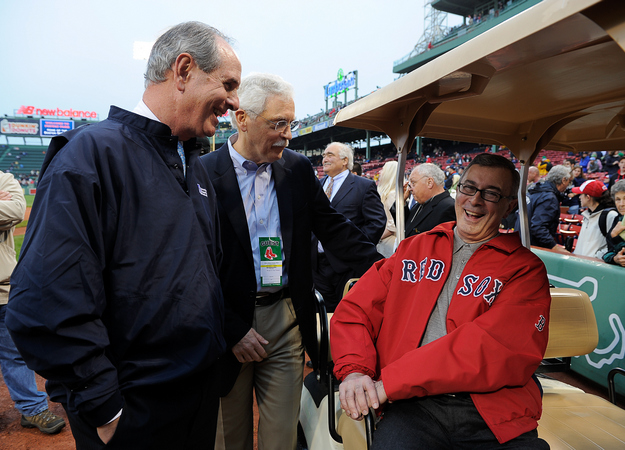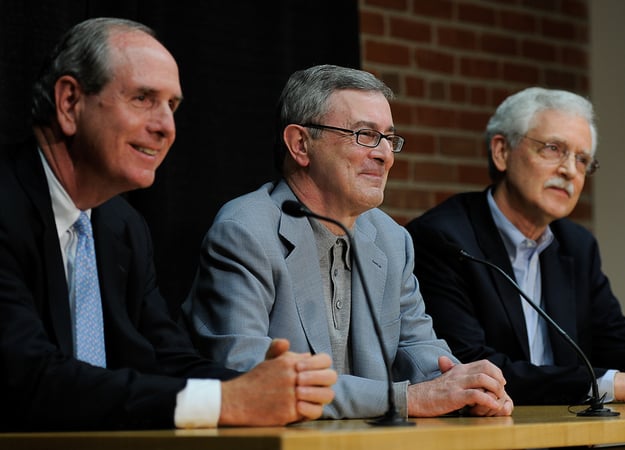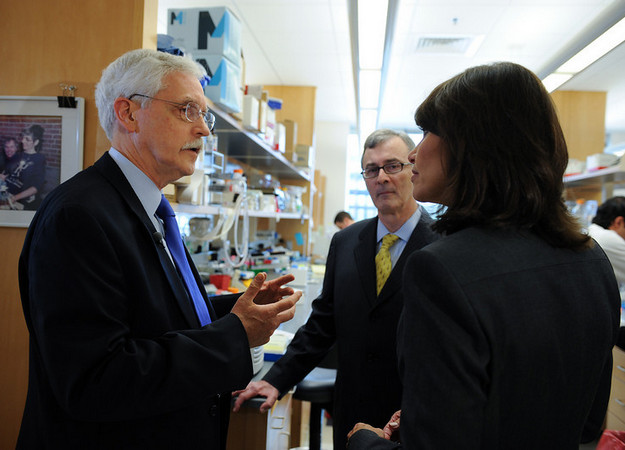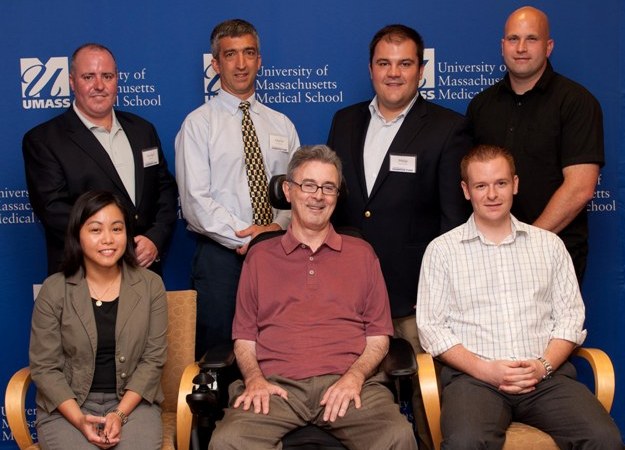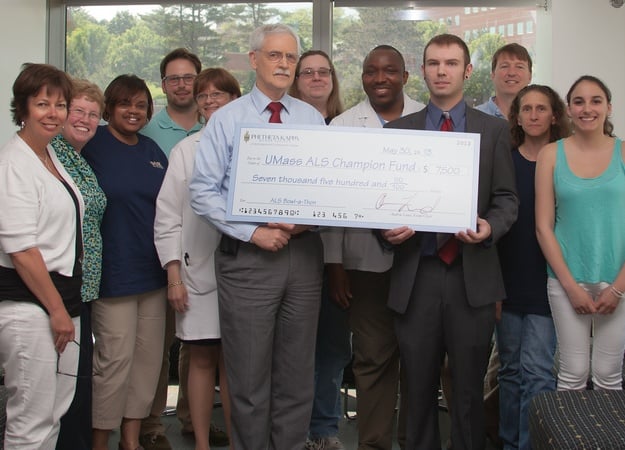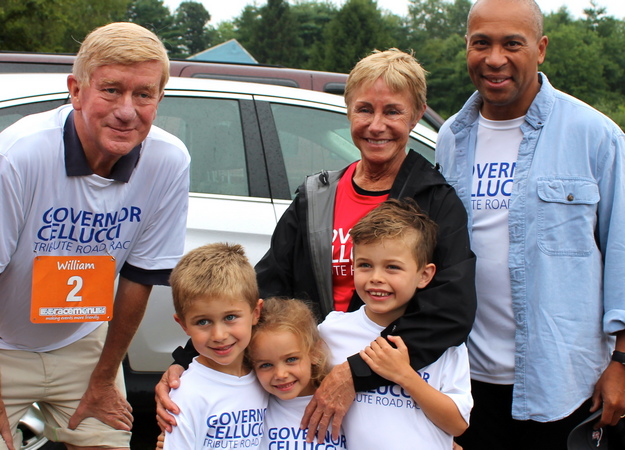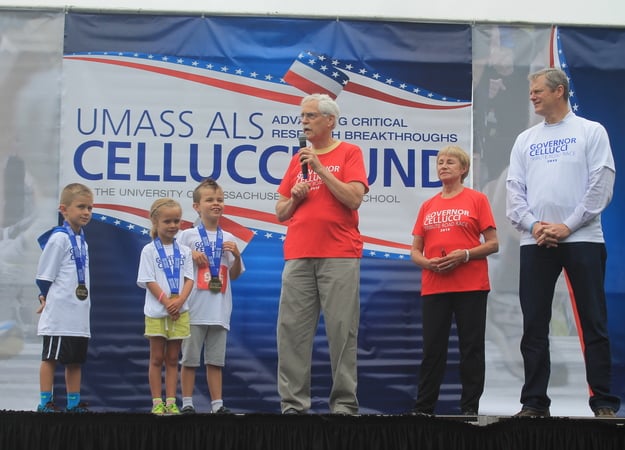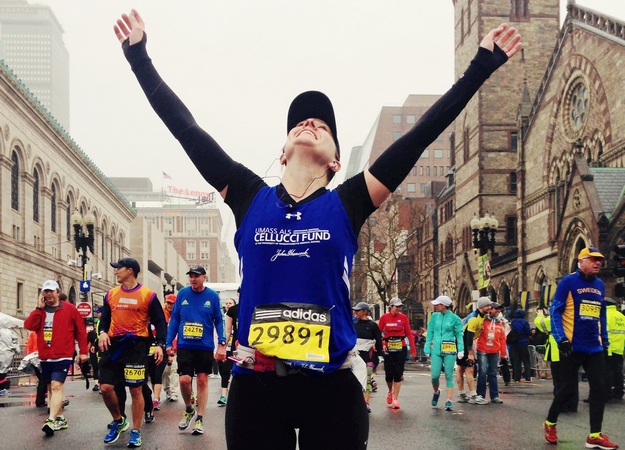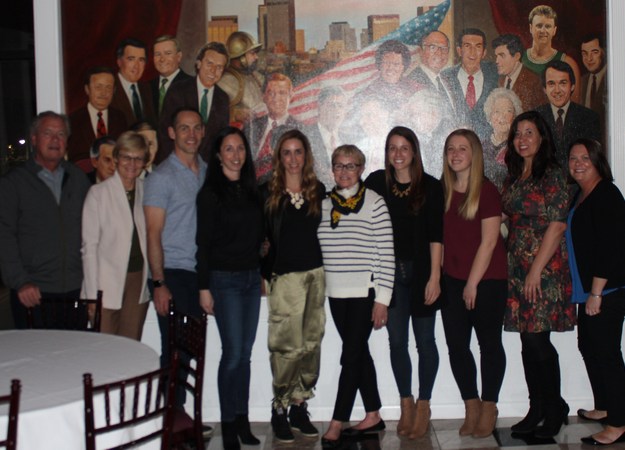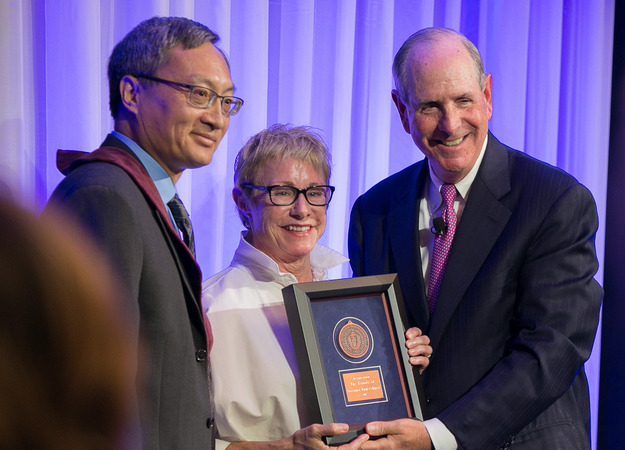A decade of dedication and discovery
Ten-year milestone marked in 2021
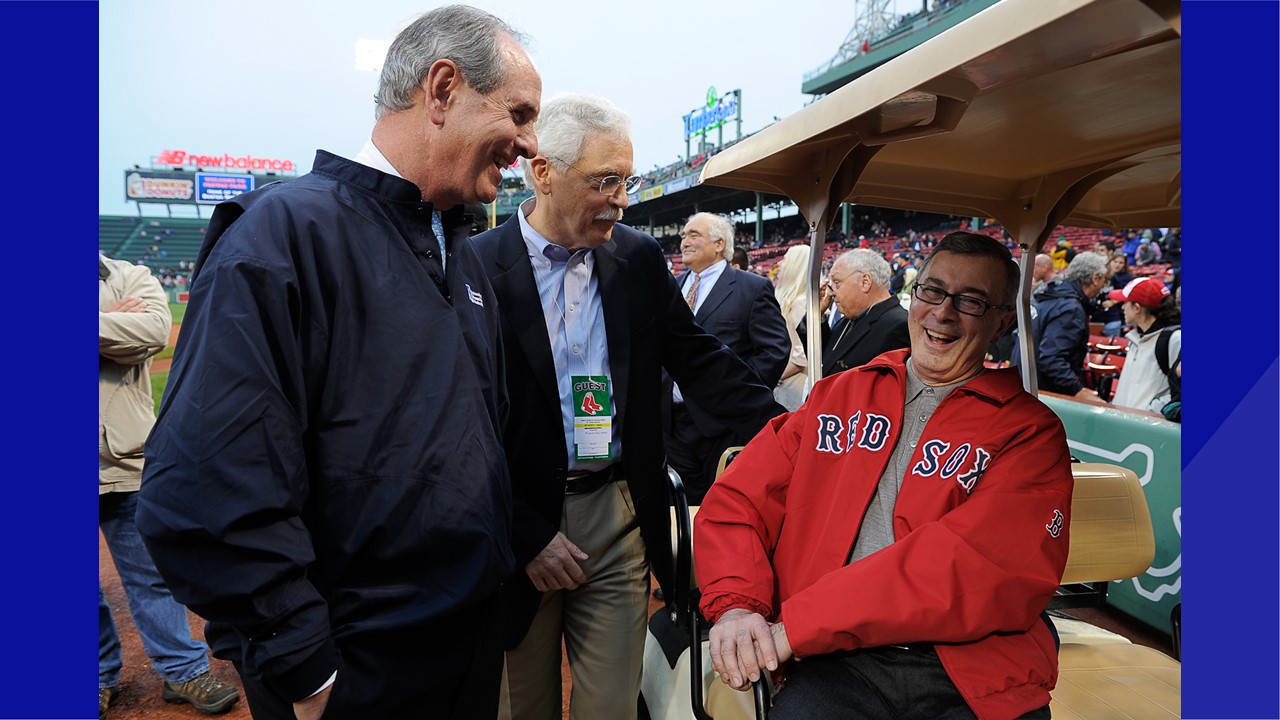
Dr. Robert Brown and the late Gov. Paul Cellucci in 2011
In mid-May 2011, the late Massachusetts Gov. Paul Cellucci kicked off what was perhaps the most important campaign of his life. With UMass Chan Medical School Chancellor Michael Collins, leading ALS researcher Robert H. Brown Jr., DPhil, MD, the late Boston Mayor Thomas Menino, former Gov. Jane M. Swift and former White House Chief of Staff Andrew Card by his side at Fenway Park in Boston, he announced the launch of a fundraising effort to fight the devastating disease that would eventually take his life: amyotrophic lateral sclerosis (ALS).
The UMass ALS Cellucci Fund—formerly named the UMass ALS Champion Fund—was established to fuel the ALS research breakthroughs happening in the UMass Chan lab of Dr. Brown, the Leo P. and Theresa M. LaChance Chair in Medical Research and director of the Program in Neurotherapeutics.
“I am proud to continue my career in public service by leading the UMass ALS Champion Fund efforts,” said Gov. Cellucci at the time. “A champion helps to deliver great victories, and Dr. Brown is a true champion of ALS research. But victories are a team effort. Dr. Brown and his colleagues at UMass Medical School need our support.” (On Sept. 7, 2021, UMass Medical School became UMass Chan Medical School, thanks to a history-making gift from The Morningside Foundation.)
From that announcement to the time of his passing in June 2013, Gov. Cellucci was a tireless advocate for the fund and the vital work it supported. He was interviewed by Boston-based television and radio news stations as well as area newspapers, and made several public appearances on behalf of the fund.
“During Paul’s struggle with ALS, Paul knew right from the beginning that the timeframe from research to effective therapy and a cure was not the timeframe that we were given,” said Gov. Cellucci’s wife Jan in December 2013 before a crowd of about 50 supporters, including former Massachusetts Governor Bill Weld, U.S. Rep. James McGovern, U.S. Rep. Richard Neal, former White House chief of staff Andrew Card, and Gary Doer, Canadian ambassador to the U.S. “It did not deter Paul. He was an amazingly strong and courageous man and Paul firmly believed that Dr. Brown would ultimately succeed.”
To honor Gov. Cellucci’s commitment to raising money and awareness for ALS research at the Medical School, the fund was renamed in April 2014.
“In establishing the initiative, Paul wanted to shine a light on UMass Medical School and the important work of Dr. Brown,” Jan Cellucci said in 2014. “He also wanted to give hope to those patients and family members struggling with ALS. The Cellucci family is honored to have Paul’s legacy recognized with the Cellucci Fund.”
As of April 2021, support for the Cellucci Fund exceeded $5.2 million. Philanthropic highlights since the fund’s inception include:
- Dan Riccio and his wife Diane M. (Casey) Riccio, PhD’03, made multiple gifts to the fund totaling $2 million.
- Nearly 7,000 people have contributed to the fund.
- More than 50 individuals have participated in the Boston Marathon through the John Hancock Marathon Non-Profit Program, which provides bibs to select nonprofit organizations throughout the community. These participants have raised more than $500,000.
- In 2014 and 2015, participants of the Paul Cellucci Tribute Road Race raised more than $180,000.
- In 2017, the Governor Paul Cellucci Chair in Neuroscience Research Chair is created using support from the Cellucci Fund. Fen-Biao Gao, PhD, professor of neurology is the inaugural holder of the chair.
That generosity has helped Dr. Brown and his colleagues make great strides in the fight against ALS, enabling them to:
- conduct research that showed ALS might be treatable using neural stem cells (2012)
- get FDA approval for phase II clinical trials of an adult stem cell treatment for patients with ALS (2014)—which was demonstrated to be safe and well-tolerated (2019)
- develop a promising therapy to silence genes that promote ALS (2015)
- collaborate with an innovative biotech company in Cambridge on a therapeutic approach that has proven to reduce levels of ALS markers in animal studies (2017)
- be the first to safely treat two research participants with a synthetic microRNA designed to silence a human disease-causing gene (2020)
“These advances would not have been possible without such dedicated support,” said Dr. Brown. “We are doing everything we can to stop this harsh, ruthless disease, so that no one else has to suffer his fate. We are fortunate to have so many partnering with us in our quest to create a world without ALS.”
